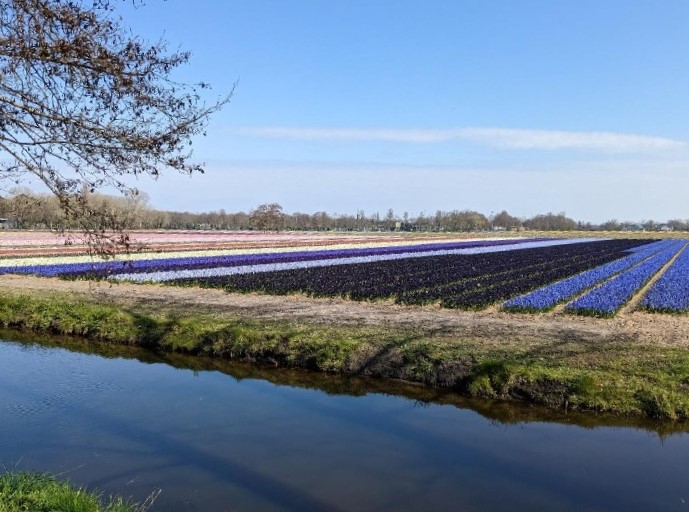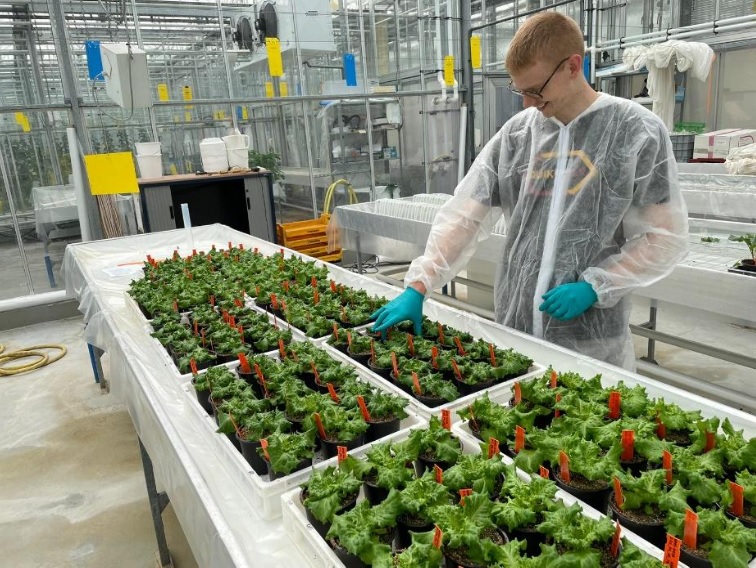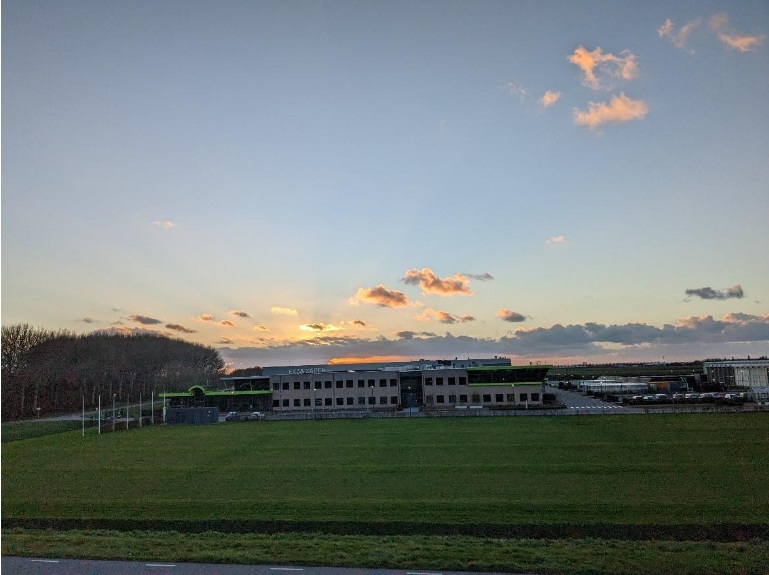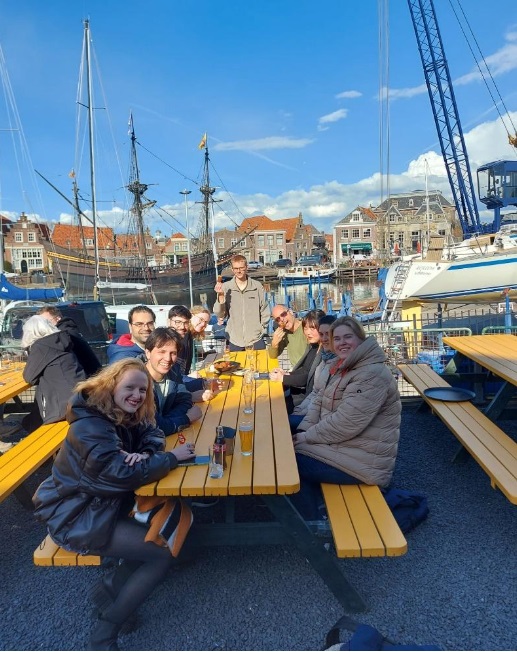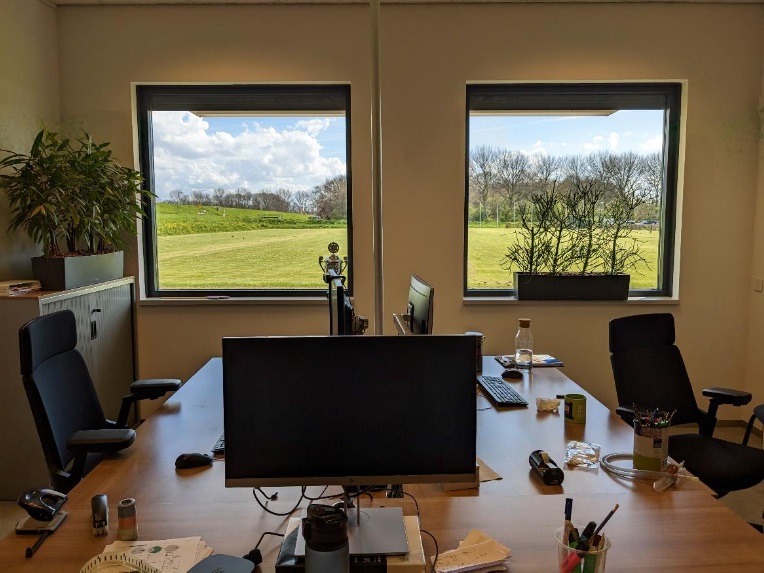For his PIPS, Adam went to Enza Zaden in the Netherlands. Enza is an international vegetable breeding company and seed supplier.
The featured image is of tulip/hyacinth fields in spring
What did you do?
At the company, I worked in the Phytopathology team, which is involved in all aspects related to plant immunity. They develop tools for diagnosis, and detection of crop diseases, as well as identifying resistance genes that can be used in breeding programmes. During my time, I worked primarily with lettuce, where I tested certain lines for their tolerance to drought and disease resistance to Downy mildew (Bremia lactucae).
What made you want to do that particular placement?
My PhD project is mostly fundamental science. I wanted an opportunity that demonstrated how similar work can be used for agriculture. Enza as a company invests a large sum of money into research as they appreciate the value this has in the development of new crop varieties. I also wanted to go somewhere abroad as I think being exposed to new work environments and cultures has benefits both in personal development and career outlook. Therefore, Enza Zaden was a perfect match for me.
How did you go about finding and planning your PIPS?
Enza has previously worked with Uni of Sheffield and therefore my PhD supervisor was able to give me a contact in the phytopathology team. I reached out to them and asked if they would be willing to host me for 3 months. I was lucky enough that they said yes! I tried to plan my PIPS to land at the start of my 3rd year just after Christmas. For me, it was the best time to do it as it gave a nice midway break to the PhD.
What have you gained from doing your PIPS?
Working at a company gave me an insight into life outside of academia. While I am still not set on my career path, I was delighted to have enjoyed it so much. I would certainly consider and/or seek out a career in industry. Aside from the technical skills of working at a breeding company, I think I gained the most in terms of personal development. I was thrown into an unfamiliar situation in an unfamiliar country, which forced me to find my feet and socialise with new people. I think this has boosted my ability to form professional contacts and friends in a relatively short period of time. I have also come back to Sheffield with a fresh perspective on work/life balance.
How would you sum up your PIPS experience?
Excellent! I don’t think it could have worked out much better. I was in a friendly department in a company that matched my interests. I had accommodation and a small stipend which made moving out there super easy. Furthermore, the town had multiple large breeding companies which meant there was a welcoming and lively international community of similarly aged people.
What advice would you give to other PGRs about PIPS?
It’s critical to plan the timing of your PIPS placement well. Not necessarily in terms of a certain year of your PhD, but in a way that doesn’t disrupt your PhD work. I had a natural transition between experiments at the start of my third year, so I decided to do my PIPS then. This meant I could wrap up one aspect of my work before leaving, ready to start a new aspect when I came back. In doing so, I was not stressed and/or working on my PhD while I was away, which allowed me to make the most of the 3-month placement.

